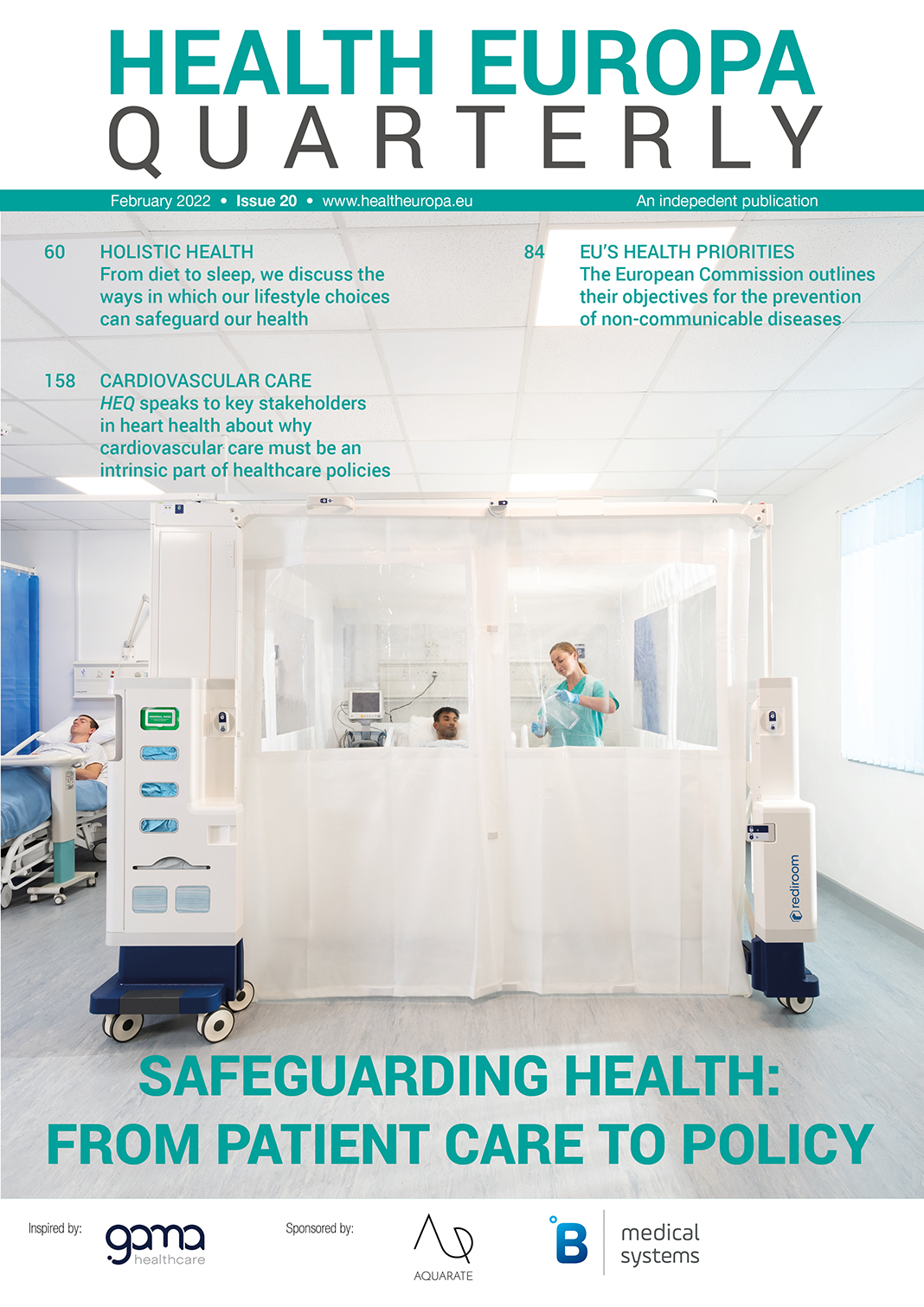Welcome to Health Europa Quarterly Issue 20, which comprises thought-provoking content that analyses topics such as COVID-19, holistic health, chronic diseases, digital health, gender equality in healthcare, antimicrobial resistance, and much more.
The start of each new year prompts a period of reflection, and for many, a renewed sense of optimism for the positive changes that may lay ahead. In 2021, healthcare systems across the globe continued to rally together in the unremitting fight against COVID-19 and, though we are not wholly free from the virus yet, we are learning to live as safely and freely as we can alongside it.
A new year is also an invitation to reflect on individual wellbeing, and perhaps, the ways in which we want to improve our own health in the coming year, particularly when healthcare systems are so stretched. As such, this issue includes a special feature on holistic health where we delve into the ways diet, sleep, exercise, and emerging lifestyle-based medical disciplines can be influential in safeguarding our physical and mental wellbeing. Health Europa Quarterly hears from Dr Fraser Quin, executive director of the British Society of Lifestyle Medicine, about this new, evidence-based medical discipline and why he believes it should be acknowledged alongside conventional medical practices to mitigate the overwhelming burden of chronic disease. The increasing shift towards a whole food, plant-based diet is indicative of the collective urge to improve public and planetary health, but how should policy evolve alongside this? We discuss this topic with Dr Sean Owens of Plant Based Doctors Ireland, a growing organisation committed to disseminating knowledge about the benefits of plant-based nutrition in order to empower both patients and healthcare practitioners. With an increasing body of literature covering the essential role of the gut microbiome, we also explore the fascinating relationship between diet and skin health with nutritional therapist, Tamla Anderson, as well as dermatologist, Dr Peter A Lio.
Diet can affect all areas of health, including sleep. According to Lisa Artis from The Sleep Charity, checking in on how we are sleeping is integral to understanding how it can potentially be offsetting other areas of our lives, and vice versa. Head over to page 70 where we discuss the challenges surrounding sleep and the public health agenda, as well as daily practices for improving sleep health.
Undoubtedly, our lifestyle choices are a key influencer in the development of many chronic diseases, and therefore secondary prevention and screening programmes are critical in mitigating the risk of disease development. With cardiovascular diseases representing the leading cause of death globally, we discuss the importance of screening and secondary prevention, and the evolvement of EU policy to support this, with Professor Hugo Katus, advocacy chair of the European Alliance for Cardiovascular Health. Ed Harding, strategic adviser to The Heart Failure Policy Network also addresses the benefits of a multidisciplinary approach to support heart failure patients who often face unclear diagnosis and fragmented care. Likewise, we consider detection from the perspective of whole genome sequencing which is used to identify disease-causing genetic variants.
While the pandemic has indeed been a testing time for all health and social care services, it has encouraged policymakers to paid heed to, and encourage, greater collaboration across the whole spectrum of care – from early detection research to the implementation of new digital solutions. The European Commission’s spokesperson for health, Stefan de Keersmaecker, discusses the advancement of Europe’s Beating Cancer Plan, particularly in the shadow of the pandemic, and how a similarly integrated, multistakeholder approach could help to address the burden of other non-communicable diseases. Our Technology and Innovation section includes an interview with Micha van Lin of Task Force Health Care who reflects on the uptake of digital healthcare solutions during the pandemic and key considerations for the internationalisation of new technologies.
Elsewhere in the publication, Veronica Collins from the European Institute for Gender Equality discusses the 2021 Gender Equality Index, which examines how gender affects access to healthcare services for men and women. A similarly insightful report from the International Osteoporosis Foundation details the disparities in service provision for osteoporosis across Europe.
Fascinating features on antimicrobial resistance, wound care management, medical cannabis, age-related conditions, and diabetes complete this issue.
I hope you find the following pages as informative and insightful as I have in their collation, and should you have any suggestions for topics we should cover please let us know by emailing editor@healtheuropa.com
Lorna Rothery
Editor
Health Europa Quarterly



